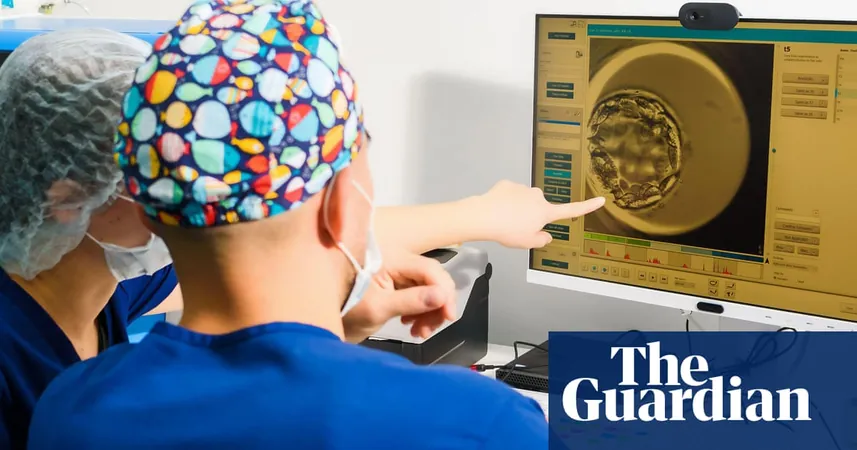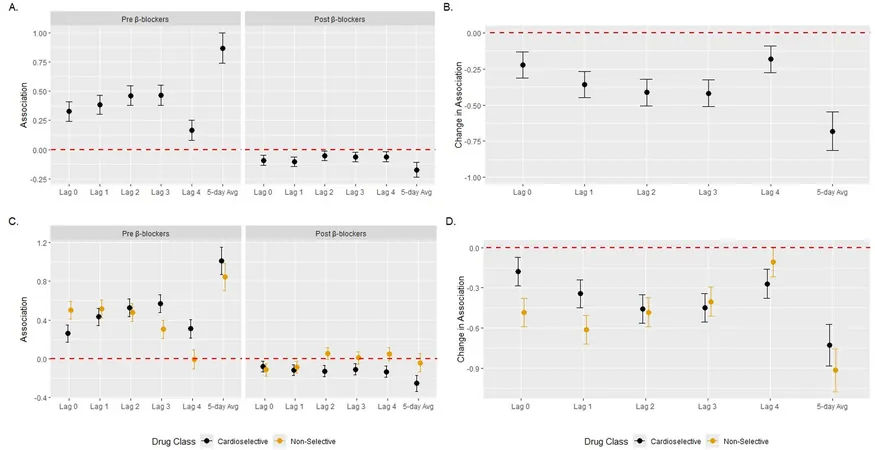
Breakthrough Test Developed to Help Identify Women at Higher Risk of Miscarriage
2025-06-26
Author: Ming
A groundbreaking new test has been unveiled by scientists aiming to identify women at increased risk of miscarriage—potentially transforming the landscape of pregnancy care and prevention.
Did you know that approximately one in six pregnancies ends in miscarriage, often occurring within the first 12 weeks? Sadly, each miscarriage subsequently raises the likelihood of experiencing another. Until now, research has predominantly centered on embryo quality, leaving the secrets of the womb lining largely unexamined.
In a remarkable development, researchers from the University of Warwick and University Hospitals Coventry and Warwickshire NHS trust conducted the largest study of its kind, revealing critical insights into why some women face repeated miscarriages. They found that in many cases, the womb lining fails to respond adequately, creating an unwelcoming environment for embryos to implant.
The study has been hailed as a significant breakthrough in understanding miscarriage, tracing its origins back to issues with the womb lining itself, even before conception. This discovery sheds light on why healthy embryos sometimes fail to thrive, offering hope for women with a history of pregnancy loss.
Dr. Joanne Muter, the lead author and researcher from Warwick Medical School, emphasizes the importance of this advancement: "We are identifying preventable miscarriages. Many women are told they’ve just had ‘bad luck,’ but our findings indicate the womb might be preparing for loss even before pregnancy begins."
Analyzing around 1,500 biopsies from over 1,300 women, the researchers pinpointed a crucial biological process—the decidual reaction—that’s supposed to prepare the womb for pregnancy. Alarmingly, this process often fails in women who have experienced miscarriages.
The malfunction creates an unstable environment, raising the risk for complications such as bleeding and early pregnancy loss. Remarkably, these abnormal reactions were consistent across menstrual cycles for some women, indicating a potentially preventable cause of miscarriage that goes beyond mere chance.
In response to their findings, the research team has pioneered a diagnostic test that measures the molecular signals indicative of a healthy or dysfunctional decidual reaction. After successfully piloting the test in Coventry, it has already benefitted over 1,000 patients.
One of the patients, Holly Milikouris, who endured the heartbreak of five miscarriages, described the experience of undergoing the new test as "lifechanging." Feeling defeated, she and her husband had almost resigned to the idea of never having children. However, the test revealed her womb lining's poor preparation for pregnancy.
After receiving treatment based on the test results, Holly and her husband welcomed two healthy children, George and Heidi. She expressed her gratitude, saying, "Being part of this trial was lifechanging. For the first time, my biopsy results were normal, leading to not just one, but two successful pregnancies."
Dr. Jyotsna Vohra, director of research at the charity Tommy’s, pointed out that women grappling with recurrent miscarriages often feel abandoned without answers. This innovative test could provide not just explanations but also pave the way for treatments aimed at preventing future losses.


 Brasil (PT)
Brasil (PT)
 Canada (EN)
Canada (EN)
 Chile (ES)
Chile (ES)
 Česko (CS)
Česko (CS)
 대한민국 (KO)
대한민국 (KO)
 España (ES)
España (ES)
 France (FR)
France (FR)
 Hong Kong (EN)
Hong Kong (EN)
 Italia (IT)
Italia (IT)
 日本 (JA)
日本 (JA)
 Magyarország (HU)
Magyarország (HU)
 Norge (NO)
Norge (NO)
 Polska (PL)
Polska (PL)
 Schweiz (DE)
Schweiz (DE)
 Singapore (EN)
Singapore (EN)
 Sverige (SV)
Sverige (SV)
 Suomi (FI)
Suomi (FI)
 Türkiye (TR)
Türkiye (TR)
 الإمارات العربية المتحدة (AR)
الإمارات العربية المتحدة (AR)